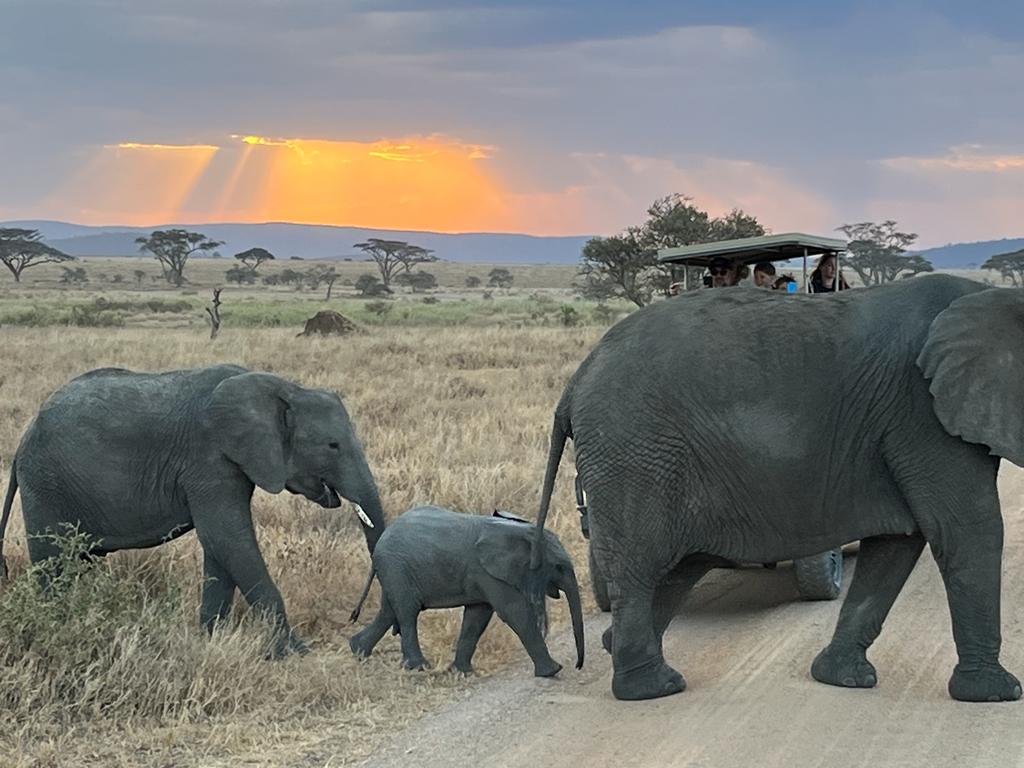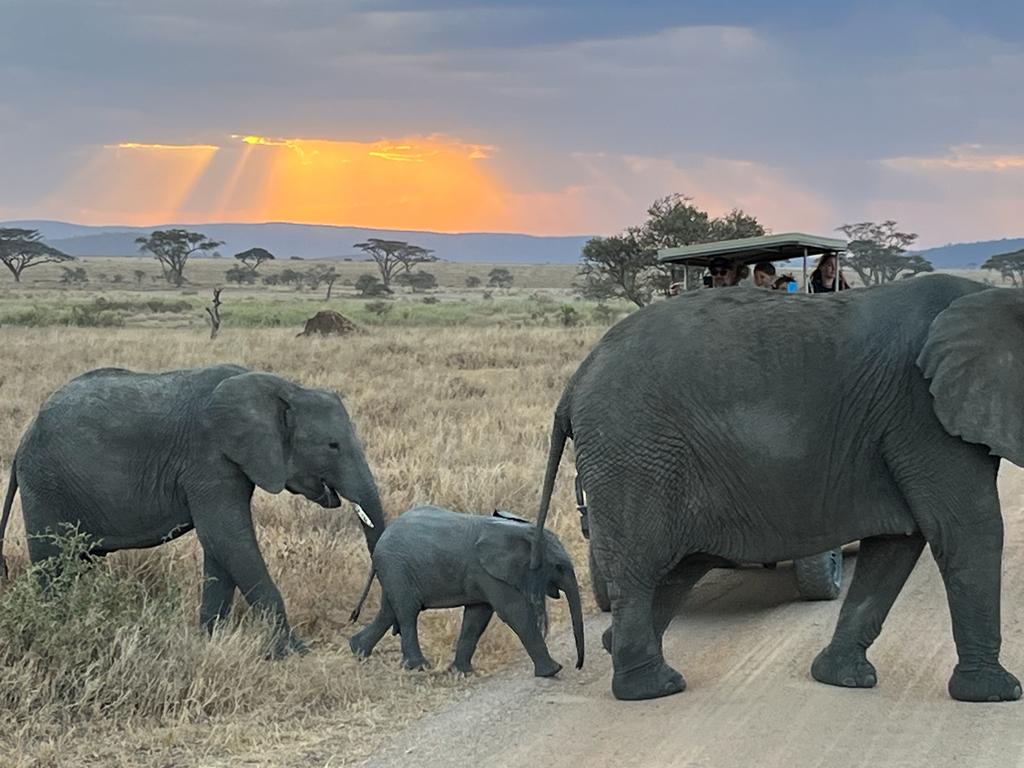Every year, nearly 1.5 million tourists visit Tanzania, enchanted by its iconic wildlife and breathtaking landscapes. Yet, how many consider the impact their travels may have on the environment and local communities? Sustainable tourism aims to strike a balance between enjoyment and conservation, making it crucial for preserving Tanzania’s natural wonders for future generations.
To travel responsibly in Tanzania, one can start by supporting eco-friendly accommodations and local businesses. Since the 1990s, the Tanzanian government has embraced sustainable tourism, recognizing its potential to drive economic growth while preserving biodiversity. For instance, choosing community-based tours not only enriches the travel experience but also ensures that a portion of your spending directly benefits local residents, enhancing their quality of life.
- Choose eco-friendly accommodations and transportation options.
- Support local businesses and community-based tourism initiatives.
- Respect wildlife by keeping a safe distance and not disturbing their habitats.
- Minimize plastic waste by using reusable items.
- Conserve water and energy during your stay.

Key Principles of Sustainable Tourism in Tanzania
Sustainable tourism in Tanzania focuses on preserving the environment while benefiting the local economy. It involves protecting wildlife and natural habitats. Travelers should minimize waste and choose eco-friendly transportation options. These practices help ensure that Tanzania’s natural beauty remains unspoiled. This way, future generations can enjoy the same experiences.
Supporting local businesses is another essential principle. By buying from local markets and staying in locally-owned accommodations, travelers directly boost the community’s economy. This helps create jobs and improve local living standards, leading to a more sustainable development. The impact of such support is both immediate and long-term.
Respect for local cultures and communities is crucial. Tourists should learn about Tanzanian traditions and participate in cultural experiences respectfully. This fosters mutual understanding and ensures that local customs are preserved. Engaging with community-based tourism projects often leads to more meaningful interactions. Respectful travel benefits both visitors and hosts.
Reducing the carbon footprint while traveling is vital. Opting for carbon-neutral flights and using public transportation contribute significantly. Simple actions, like reducing plastic use and conserving water, can make a big difference. Incorporating these practices ensures that the tourism industry becomes more sustainable. Every small effort counts towards a greener future.
Understanding the Environmental, Economic, and Social Impact
The environmental impact of tourism in Tanzania is significant. Popular tourist activities, such as safaris and mountain treks, can disturb wildlife and damage natural habitats. By following eco-friendly practices, tourists help protect these delicate ecosystems. Using less plastic and opting for sustainable lodging are simple steps. These actions ensure the preservation of Tanzania’s beauty.
Economic impacts are complex but mostly positive when tourism is done right. Tourism creates jobs and stimulates local businesses, boosting the economy. Money spent by tourists supports local vendors and helps fund conservation efforts. It’s a win-win when visitors choose local services and products. This way, their spending has a meaningful impact on communities.
Social impacts can be transformative for local communities. Tourism fosters cultural exchange and mutual understanding. Engaging with local traditions and cultural tours provides insight into Tanzanian life. However, it’s crucial that this engagement is respectful and genuine. It benefits both tourists and locals, enriching the experience for everyone.
Sustainable tourism ensures long-term benefits for all involved. It promotes a sense of responsibility toward environmental conservation and social well-being. Governments and organizations play critical roles in implementing sustainable practices. Support from visitors is vital to maintaining these efforts. Together, we can ensure that Tanzania remains beautiful and prosperous.
Practical Ways to Support Local Communities While Traveling
Supporting local communities while traveling in Tanzania can be both rewarding and impactful. One simple way is by purchasing goods and souvenirs from local artisans. This not only provides financial support but also helps preserve traditional crafts. Additionally, dining at locally-owned restaurants ensures that your money stays within the community. These small actions can lead to significant positive changes.
Participating in community-based tourism projects is another effective method. These projects are designed to benefit local people directly. For example, you can join tours led by local guides or stay in community-managed lodgings. This kind of engagement supports education and job creation within these communities. Travelers often find these experiences more authentic and enriching.
Volunteer programs offer yet another way to give back. Many organizations in Tanzania welcome tourists who want to lend a hand. Whether it’s teaching English or working on conservation projects, your contribution can make a big difference. Volunteering not only supports the community but also allows travelers to gain deeper insights into local life. It’s a mutually beneficial way to travel.
Lastly, raising awareness about responsible tourism practices is crucial. Sharing your experiences and the importance of supporting local communities can inspire others to do the same. Social media can be a powerful tool for spreading this message. The more people understand and follow these practices, the greater the overall impact will be. Together, we can help ensure a sustainable future for Tanzanian communities.
Eco-Friendly Practices for Travelers in Tanzania
Traveling eco-friendly in Tanzania involves making conscious decisions to reduce your environmental footprint. One effective approach is to minimize plastic use. Bring a reusable water bottle, bags, and containers to avoid single-use plastics. Many local shops offer eco-friendly alternatives. These small changes can significantly reduce waste.
Choosing eco-friendly accommodations is also a key practice. Opt for lodges and hotels that use renewable energy sources, like solar power. Look for places that promote water conservation and waste recycling. Supporting these establishments encourages more hotels to adopt sustainable practices. It benefits both the environment and the local economy.
Respecting wildlife and natural habitats is crucial. Stick to designated trails when hiking and follow park regulations during safaris. Avoid feeding or disturbing wildlife. Observing animals from a distance ensures their well-being. These respectful practices help preserve Tanzania’s incredible biodiversity.
Transportation choices also impact your travel footprint. Whenever possible, use public transport or shared rides instead of renting cars. Consider cycling or walking for short distances. These options not only reduce carbon emissions but also offer unique ways to experience local culture. They add an extra layer of adventure to your trip.
Another important aspect is conserving water and energy. Take shorter showers and turn off lights when not in use. Many regions in Tanzania face water shortages, so every drop saved counts. Being mindful of your energy use helps lessen your impact. These practices are easy to adopt and make a big difference.
Supporting local conservation projects can enhance your eco-friendly efforts. Many organizations offer volunteer opportunities in wildlife preservation and community development. Your participation and donations support crucial environmental initiatives. It’s a fulfilling way to contribute to Tanzania’s sustainable future. These combined efforts help secure a thriving natural environment.
Key Takeaways
- Pick eco-friendly hotels and transport.
- Buy from local shops and support community tours.
- Don’t disturb animals; watch them from afar.
- Use reusable bottles and bags to cut plastic waste.
- Save water and power while traveling.














